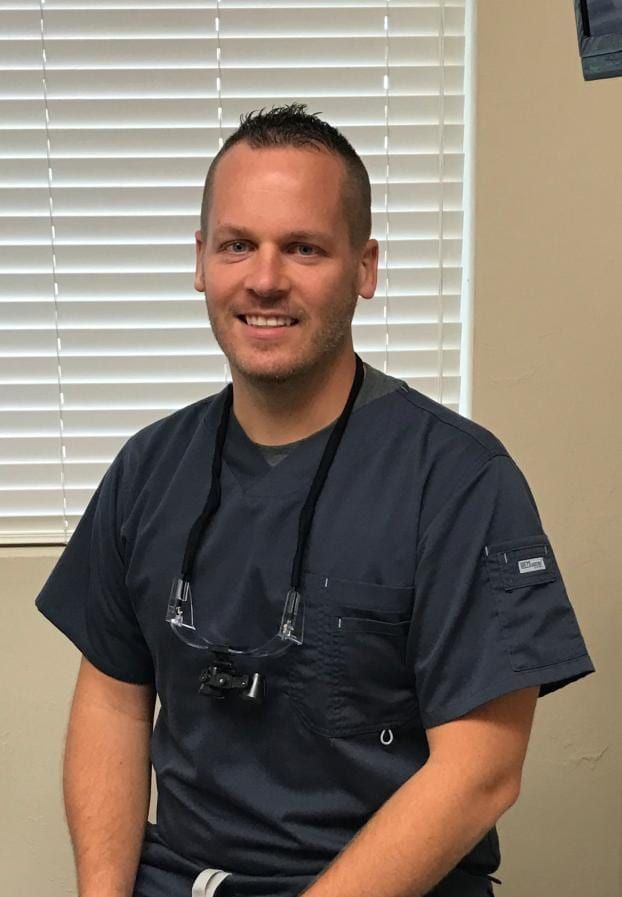Understanding Special Needs Dentistry
Special needs dentistry is a specialized branch of dental care that caters to individuals who have physical, developmental, cognitive, or sensory impairments. Patients with conditions such as autism, Down syndrome, cerebral palsy, and other disabilities often require a tailored approach to ensure their comfort and successful treatment. This field of dentistry goes beyond standard oral healthcare, incorporating behavioral techniques, sedation options, and advanced communication strategies to meet the needs of each patient.
At McCartney Dental, Dr. Jonathan McCartney provides compassionate care designed to accommodate patients with diverse needs. The goal is to create a welcoming and calming environment, ensuring that dental visits are positive experiences rather than sources of anxiety. Special needs dentistry requires patience, expertise, and adaptability to modify traditional treatment methods to fit each patient’s unique situation.
Challenges Faced by Patients with Special Needs
Individuals with special needs often face challenges that make routine dental visits difficult. Many have heightened sensory sensitivities, making the sounds, lights, and textures of a dental office overwhelming. Others may have difficulty sitting still for extended periods or struggle with understanding instructions due to cognitive impairments. Additionally, some patients may experience heightened anxiety or fear associated with medical environments.
Because of these obstacles, regular dental care can become inconsistent or even avoided altogether. Unfortunately, this increases the risk of oral health complications, such as cavities, gum disease, and infections. By offering specialized care, McCartney Dental ensures that all patients, regardless of their limitations, have access to high-quality dental treatment tailored to their needs.
A Tailored Approach to Dental Care
Providing dental care for special needs patients requires an individualized approach. This often involves adjustments in communication, treatment techniques, and the overall clinical environment. For instance, dental professionals may use visual supports, social stories, or pre-visit introductions to help patients become familiar with the setting before their appointment.
For individuals with mobility limitations, accessible treatment rooms and specialized equipment may be necessary. In some cases, sedation dentistry can be beneficial to ensure a comfortable and stress-free experience. Dr. McCartney and his team work closely with caregivers to determine the best approach for each patient, emphasizing a gentle and patient-centered method.
The Importance of Preventive Dentistry
Preventive care is crucial for patients with special needs, as they may face unique oral health risks. Some conditions contribute to dental issues, such as weakened enamel, dry mouth, or difficulty with at-home oral hygiene routines. Regular dental check-ups help monitor and address these concerns before they become serious problems.
In addition to professional cleanings and exams, special needs dentistry often includes caregiver education. Parents and guardians receive guidance on how to assist with brushing and flossing techniques, diet recommendations, and strategies to make oral hygiene a daily habit. Preventive treatments such as fluoride applications and dental sealants can further protect against decay, reducing the likelihood of future complications.
Creating a Comfortable and Safe Environment
Ensuring a safe and comfortable experience for special needs patients requires a well-prepared dental team and an accommodating office setting. Many practices, including McCartney Dental, prioritize sensory-friendly modifications such as dimmed lights, noise-reducing headphones, and private treatment areas to minimize stress.
Behavioral techniques, such as tell-show-do (explaining and demonstrating procedures before performing them), help patients feel more in control. Slow introductions to equipment, praise-based encouragement, and the use of distractions like music or weighted blankets can make a significant difference in keeping patients at ease. Every small adjustment contributes to making the dental visit a positive and stress-free experience.
The Role of Caregivers in Special Needs Dentistry
Caregivers play a crucial role in ensuring the success of dental visits for special needs patients. Open communication between dental providers and caregivers allows for a more personalized approach, as they can provide insight into specific triggers, comfort measures, and behavioral strategies that work best.
Before appointments, caregivers can prepare patients by discussing the visit in a reassuring manner, using visual aids, or practicing at-home oral hygiene in a way that mimics a dental setting. Post-visit, reinforcing positive experiences through praise or rewards helps build long-term trust in dental care. The partnership between dentists and caregivers is essential for fostering a lifetime of good oral health habits.
Advancing Special Needs Dentistry for the Future
As awareness and research in special needs dentistry grow, advancements in technology and training continue to improve care for individuals with disabilities. More dental professionals are receiving specialized training in treating patients with diverse needs, and innovative techniques such as virtual reality exposure therapy and alternative sedation methods are being explored.
At McCartney Dental, Dr. McCartney remains committed to staying informed on the latest developments in special needs dentistry to provide the highest level of care for his patients. By continually adapting and refining techniques, the practice ensures that individuals with special needs receive the support, compassion, and expertise they deserve.
Sources
- Fiske, J., Griffiths, J., Thompson, S., & Hatton, C. (2000). Special Care Dentistry: Maintaining Oral Health in Patients with Disabilities. British Dental Journal.
- Glassman, P. (2012). Oral Health for People with Special Needs: Current Practices and Future Directions. Journal of the California Dental Association.
- Weil, T. N., Inglehart, M. R. (2010). Dental Care for Patients with Autism Spectrum Disorders. Special Care in Dentistry.


